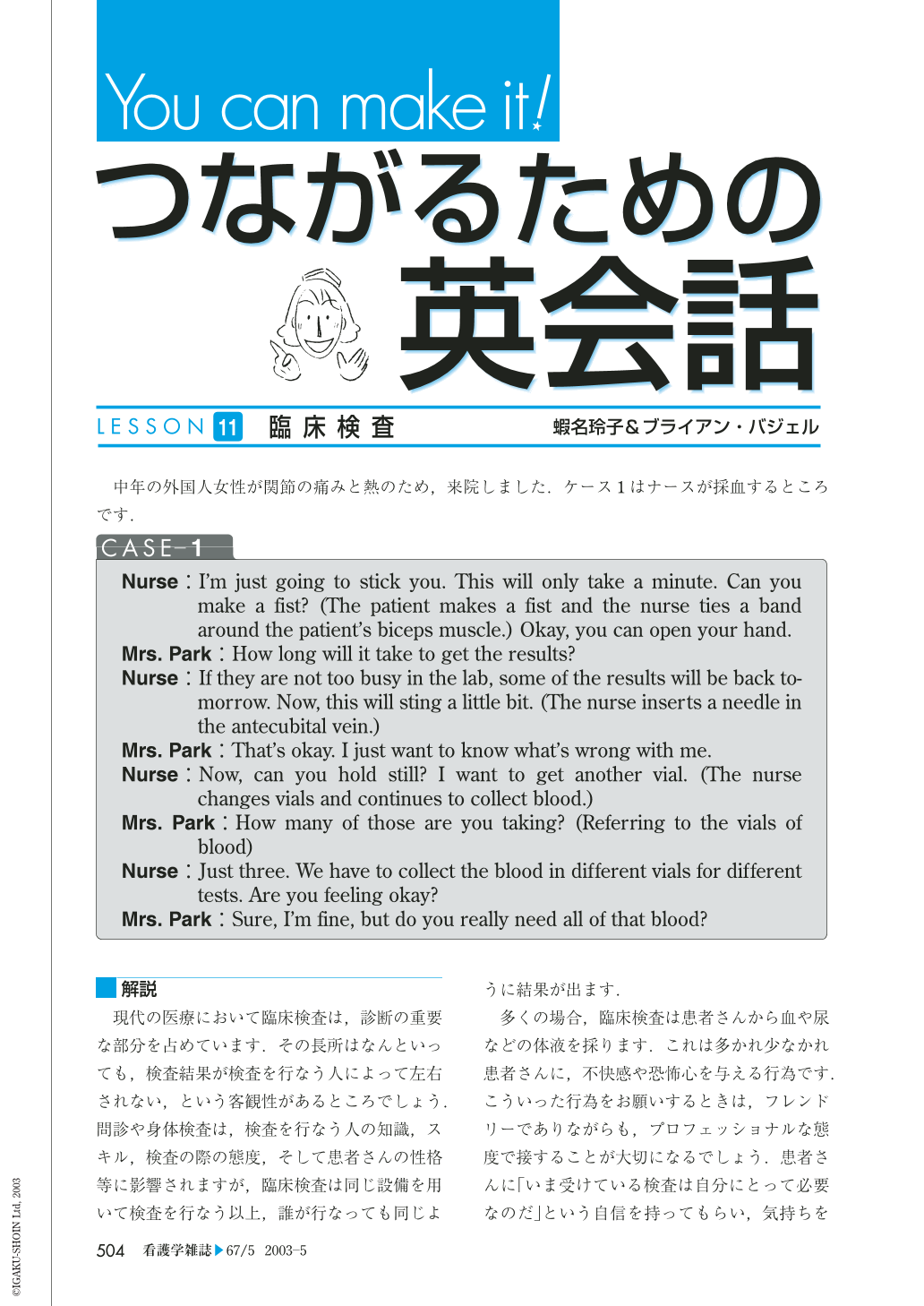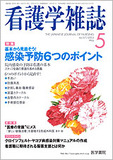- 有料閲覧
- 文献概要
- 1ページ目
中年の外国人女性が関節の痛みと熱のため,来院しました.ケース1はナースが採血するところです.
CASE-1
Nurse:I'm just going to stick you. This will only take a minute. Can you make a fist? (The patient makes a fist and the nurse ties a band around the patient's biceps muscle.) Okay, you can open your hand.
Mrs. Park:How long will it take to get the results?
Nurse:If they are not too busy in the lab, some of the results will be back tomorrow. Now, this will sting a little bit. (The nurse inserts a needle in the antecubital vein.)
Mrs. Park:That's okay. I just want to know what's wrong with me.
Nurse:Now, can you hold still? I want to get another vial. (The nurse changes vials and continues to collect blood.)
Mrs. Park:How many of those are you taking? (Referring to the vials of blood)
Nurse:Just three. We have to collect the blood in different vials for different tests. Are you feeling okay?
Mrs. Park:Sure, I'm fine, but do you really need all of that blood?
解説
現代の医療において臨床検査は,診断の重要な部分を占めています.その長所はなんといっても,検査結果が検査を行なう人によって左右されない,という客観性があるところでしょう.問診や身体検査は,検査を行なう人の知識,スキル,検査の際の態度,そして患者さんの性格等に影響されますが,臨床検査は同じ設備を用いて検査を行なう以上,誰が行なっても同じように結果が出ます. 多くの場合,臨床検査は患者さんから血や尿などの体液を採ります.これは多かれ少なかれ患者さんに,不快感や恐怖心を与える行為です.こういった行為をお願いするときは,フレンドリーでありながらも,プロフェッショナルな態度で接することが大切になるでしょう.患者さんに「いま受けている検査は自分にとって必要なのだ」という自信を持ってもらい,気持ちを落ち着かせてもらうためです.

Copyright © 2003, Igaku-Shoin Ltd. All rights reserved.


